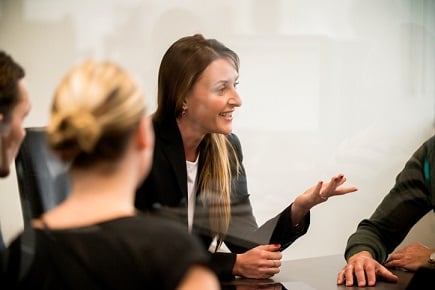
Tackling disengagement begins with recognising the signs early

Poor performance. When people are failing to deliver to an acceptable standard, despite having the skills, knowledge and experience needed, ask them if they are enjoying their job. Errors, unfinished projects, mediocre effort, lack of focus, or simply failing to follow through are common performance issues that arise when people ‘check out’.
‘Sickies’. Simply getting out of bed and ready for work can feel like an insurmountable challenge when people lack the motivation to do their job. While of course people need to take time off when unwell, take notice when they regularly take unplanned time off. Unplanned time off either side of weekends, when deadlines fall due or challenges need to be confronted are telling signs.
‘Ordinary’ efforts. A lack of willingness to do more than is required is often reflective of disengagement. People who are fully invested in their role are typically happy to ‘go the extra mile’ and don’t have to be asked. Engaged people are more likely to support their colleagues to reach goals or deadlines. Disengaged people tend to focus on what they need to achieve and avoid participating in the group. They are more likely to palm off responsibilities and fail to step forward when the team needs them to.
Connect with and get to know people. Talk to the people on your team about how they feel about their role, your business and the future. Explore with them the extent to which they enjoy their job and the team they are a part of. Don’t underestimate how common it is for people to simply not like what they do.
Manage energy. The strength of your teams spirit has a profound influence on the level of engagement and ultimately performance achieved. When energized, people are entirely more likely to choose effective thoughts, emotions and ways of behaving. When drained of energy, however, most people are likely to respond in ways that undermine success.
Share an inspiring vision for the future. Build a clear picture of the future in which people can see the role they need to play. Inspire every member of your team to want play their role, by sharing insight to what you are collectively capable of achieving. Strive to Influence a strong sense of belief in the future and people are more likely to be energized by the challenge. In contrast, when people see little hope of success, they are more likely to disengage.
Influence a strong sense of personal value. How we feel about ourselves as well as how we believe other people feel about us plays a significant role in energising our spirit and influencing our engagement. Most people are more likely to be engaged when they, for example, feel valued, capable and respected. Reward and recognise people for the contribution they make. Even a thank you or public recognition of their efforts can make a big difference.
Build strong relationships. Create an environment in which people are expected to nurture healthy relationships that allow your whole team to thrive. With trust and respect for the people they work with, people are more like to be emotionally invested in your business. Consider carefully the people you invite to join your team and the impact they are likely to have. Take early action to address conflicts that arise and behaviours that adversely impact how people feel about coming to work.
 Karen Gately, a founder of HR Consultancy Ryan Gately, is a leadership and people-management specialist. Karen works with leaders and HR teams to drive business results through the talent and energy of people. She is the author of The People Manager’s Toolkit: A Practical guide to getting the best from people (Wiley) and The Corporate Dojo: Driving extraordinary results through spirited people. For more information visit www.ryangately.com.au or contact [email protected]
Karen Gately, a founder of HR Consultancy Ryan Gately, is a leadership and people-management specialist. Karen works with leaders and HR teams to drive business results through the talent and energy of people. She is the author of The People Manager’s Toolkit: A Practical guide to getting the best from people (Wiley) and The Corporate Dojo: Driving extraordinary results through spirited people. For more information visit www.ryangately.com.au or contact [email protected]